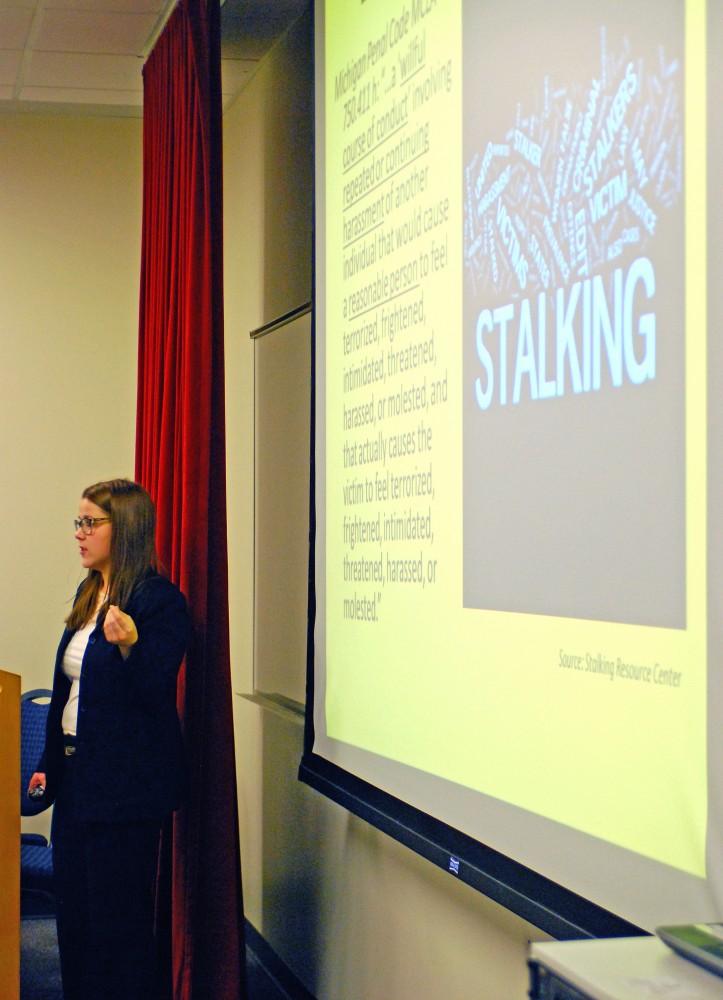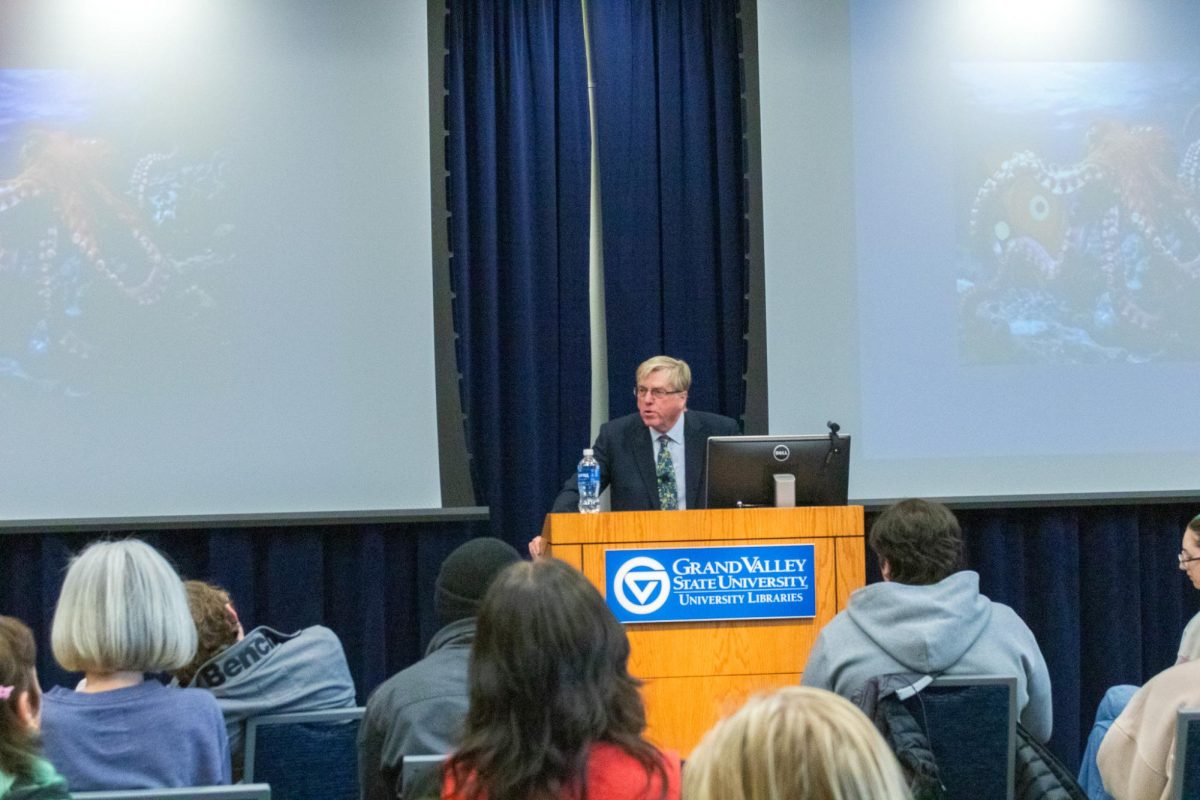Setting the facts straight on stalking

GVL / Hannah Mico Tara Aday, and grad student here at Grand Valley and the Development and Communications Associate at Safe Haven Ministries, educated students on campus about the dangers of stalking and how to avoid and prevent threatening situations.
Feb 3, 2014
In honor of National Stalking Awareness Month, the Grand Valley State University Women’s Center, in cooperation with Safe Haven Ministries, held the presentation, “Stalking: Know it. Name it. Stop it.”
The Thursday event featured Tara Aday, development and communications associate for Safe Haven Ministries, who explained some statistics, misconceptions and real life examples of modern day stalking incidents.
“Keeping students educated on stalking is important since it is a topic not often discussed,” Aday said. “It needs to be recognized locally, nationally and across campus to ensure that it is portrayed in an accurate manner.”
The event started off with an online quiz to identify stalking misconceptions that are often held by students. The quiz revealed that 6.6 million people are stalked every year in the U.S., and most stalkers are related to the victim in some sense.
Other facts included:
– one in six women are stalked
– one in 19 men are stalked
– one third of victims need to seek the help of a mental health professional after being stalked
One main topic of conversation was the idea that stalking is often misconstrued by the media in a playful, unserious way.
“Stalking is often seen as a joke and not as the crime that it truly is,” Aday said. “Opportunities like this presentation give us a chance to talk about the reality and seriousness of stalking and ways to prevent dangerous situations and ways to receive the help that you may need.”
The main problem associated with catching and punishing stalkers is the idea that many people are afraid to report an uncomfortable situation and stalking is often not seen as a crime, said Aday.
GVSU defines stalking as, “…a willful course of conduct involving repeated or continuing harassment of another individual that would cause a reasonable person to feel terrorized, frightened, intimidated, threatened, harassed or molested, and that actually causes the victim to feel terrorized, frightened, intimidated, threatened, harassed or molested.”
Aday said if any student feels as though their safety is being compromised, they have the right to reach out to law officials to take the next step regarding the situation at hand.
To report a stalking related incident or to get help on what steps to take to avoid a dangerous situation, students can contact the Women’s Center at 616-331-2748. The center is also available for students needing to talk about a past encounter.
“It is important to remember that no one is at fault for being a victim of stalking,” Aday said. “No matter the action taken, there is always a resource and a way for someone to get the help that they need.”






















